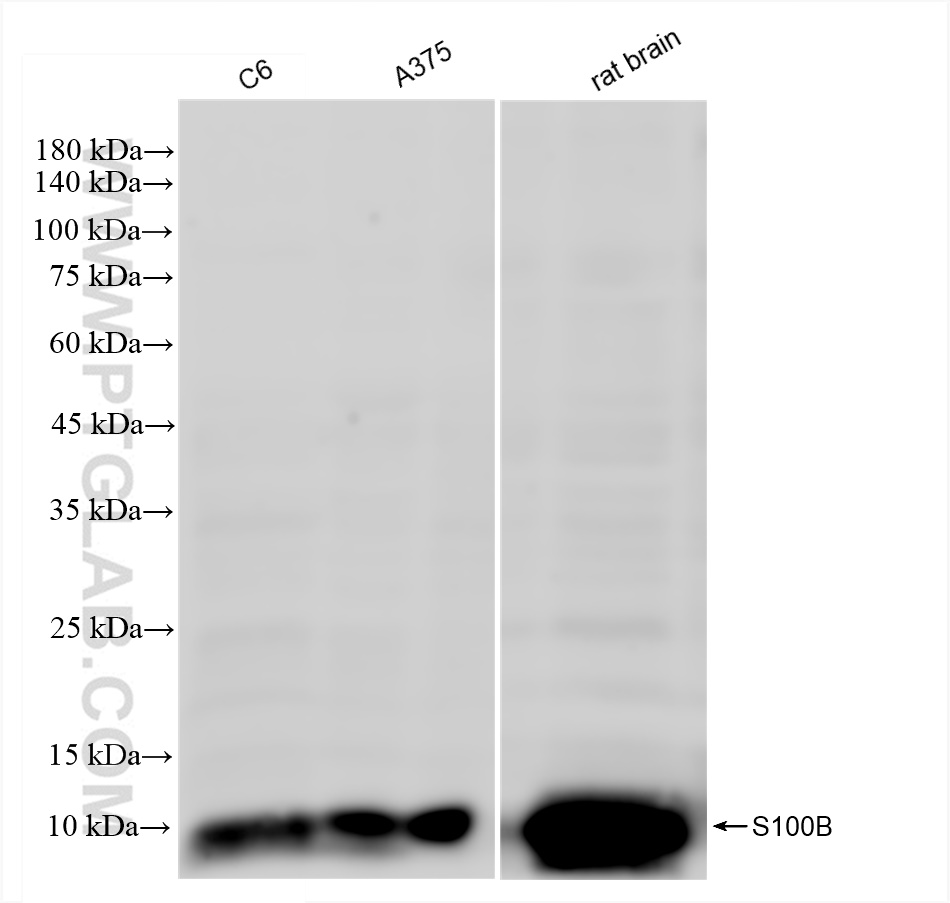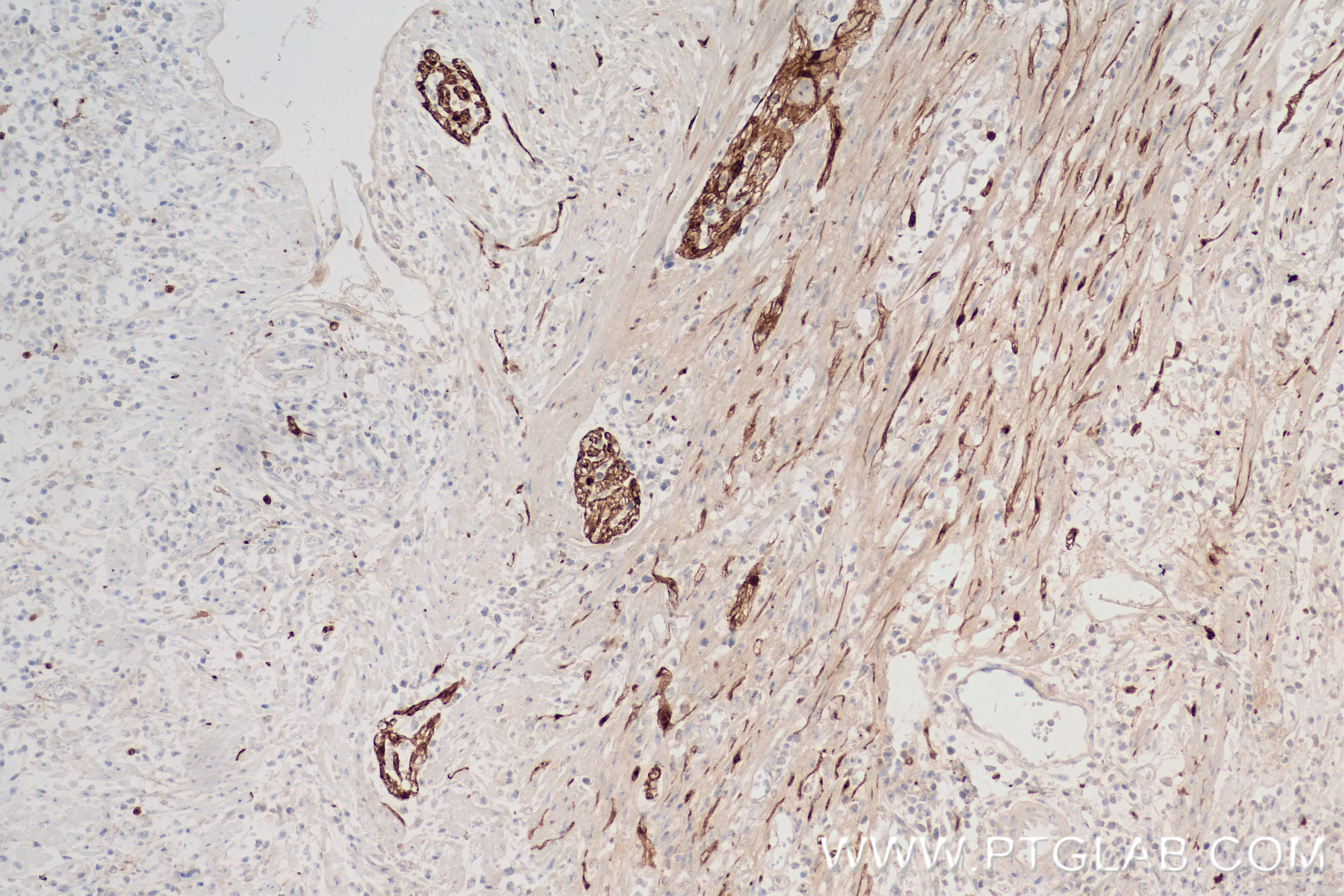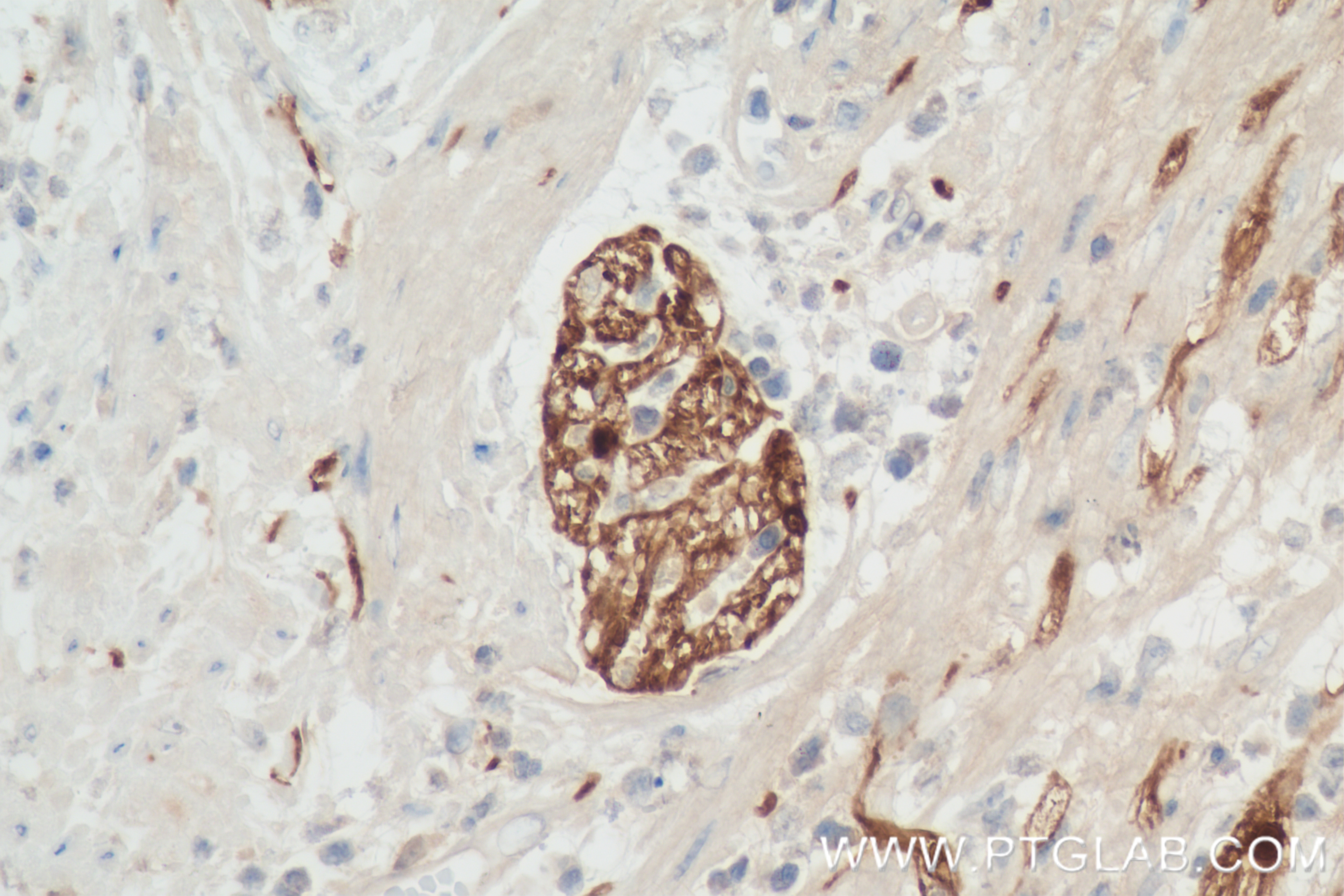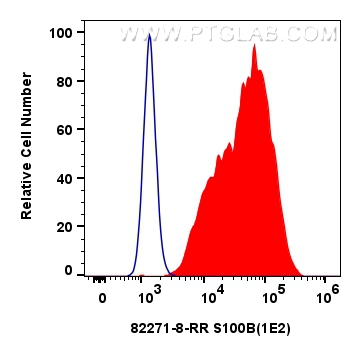验证数据展示
产品信息
82271-8-PBS targets S100B in WB, IHC, FC (Intra), Indirect ELISA applications and shows reactivity with human, rat samples.
| 经测试应用 | WB, IHC, FC (Intra), Indirect ELISA Application Description |
| 经测试反应性 | human, rat |
| 免疫原 | S100B fusion protein Ag7440 种属同源性预测 |
| 宿主/亚型 | Rabbit / IgG |
| 抗体类别 | Recombinant |
| 产品类型 | Antibody |
| 全称 | S100 calcium binding protein B |
| 别名 | S100 beta, S-100 protein beta chain, S100 calcium-binding protein B, Protein S100-B, Protein S100 B |
| 计算分子量 | 11 kDa |
| 观测分子量 | 11 kDa |
| GenBank蛋白编号 | BC001766 |
| 基因名称 | S100 Beta |
| Gene ID (NCBI) | 6285 |
| 偶联类型 | Unconjugated |
| 形式 | Liquid |
| 纯化方式 | Protein A purification |
| UNIPROT ID | P04271 |
| 储存缓冲液 | PBS only , pH 7.3 |
| 储存条件 | Store at -80°C. The product is shipped with ice packs. Upon receipt, store it immediately at -80°C |
背景介绍
S100B is a member of the S100 family of proteins containing 2 EF-hand calcium-binding motifs and has been implicated in the regulation of cellular activities such as metabolism, motility and proliferation. In the nervous system, S100B is constitutively released by astrocytes into the extracellular space and at nanomolar concentrations, it can promote neurite outgrowth and protect neurons against oxidative stress. Within the central nervous system (CNS), S100B is thought to be a marker for astroglial activation, linking astrocyte dysfunction to schizophrenia. In addition to astrocytes, S100B is released from many cell types, such as, adipocytes, chondrocytes, cardiomyocytes and lymphocytes. Serum S100B represents a new biomarker for mood disorders.




